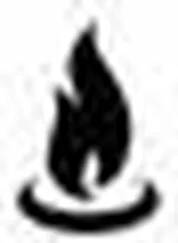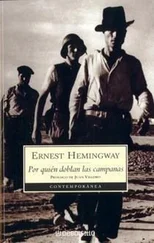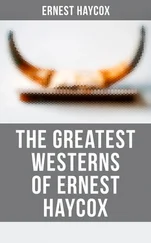“I don’t believe she’ll ever marry him.”
“Why not?”
“I don’t know. I just don’t believe it. Have you known her a long time?”
“Yes,” I said. “She was a V. A. D. in a hospital I was in during the war.”
“She must have been just a kid then.”
“She’s thirty-four now.”
“When did she marry Ashley?”
“During the war. Her own true love had just kicked off with the dysentery.”
“You talk sort of bitter.”
“Sorry. I didn’t mean to. I was just trying to give you the facts.”
“I don’t believe she would marry anybody she didn’t love.”
“Well,” I said. “She’s done it twice.”
“I don’t believe it.”
“Well,” I said, “don’t ask me a lot of fool questions if you don’t like the answers.”
“I didn’t ask you that.”
“You asked me what I knew about Brett Ashley.”
“I didn’t ask you to insult her.”
“Oh, go to hell.”
He stood up from the table his face white, and stood there white and angry behind the little plates of hors d’ceuvres.
“Sit down,” I said. “Don’t be a fool.”
“You’ve got to take that back.”
“Oh, cut out the prep-school stuff.”
“Take it back.”
“Sure. Anything. I never heard of Brett Ashley. How’s that?”
“No. Not that. About me going to hell.”
“Oh, don’t go to hell,” I said. “Stick around. We’re just starting lunch.”
Cohn smiled again and sat down. He seemed glad to sit down. What the hell would he have done if he hadn’t sat down? “You say such damned insulting things, Jake.”
“I’m sorry. I’ve got a nasty tongue. I never mean it when I say nasty things.”
“I know it,” Cohn said. “You’re really about the best friend I have, Jake.”
God help you, I thought. “Forget what I said,” I said out loud. “I’m sorry.”
“It’s all right. It’s fine. I was just sore for a minute.”
“Good. Let’s get something else to eat.”
After we finished the lunch we walked up to the cafė de la Paix and had coffee. I could feel Cohn wanted to bring up Brett again, but I held him off it. We talked about one thing and another, and I left him to come to the office.
At five o’clock I was in the Hotel Crillon waiting for Brett. She was not there, so I sat down and wrote some letters. They were not very good letters but I hoped their being on Crillon stationery would help them. Brett did not turn up, so about quarter to six I went down to the bar and had a Jack Rose with George the barman. Brett had not been in the bar either, and so I looked for her up-stairs on my way out, and took a taxi to the cafė Select. Crossing the Seine I saw a string of barges being towed empty down the current, riding high, the bargemen at the sweeps as they came toward the bridge. The river looked nice. It was always pleasant crossing bridges in Paris.
The taxi rounded the statue of the inventor of the semaphore engaged in doing same, and turned up the Boulevard Raspail, and I sat back to let that part of the ride pass. The Boulevard Raspail always made dull riding. It was like a certain stretch on the P.L.M. between Fontainebleau and Montereau that always made me feel bored and dead and dull until it was over. I suppose it is some association of ideas that makes those dead places in a journey. There are other streets in Paris as ugly as the Boulevard Raspail. It is a street I do not mind walking down at all. But I cannot stand to ride along it. Perhaps I had read something about it once. That was the way Robert Cohn was about all of Paris. I wondered where Cohn got that incapacity to enjoy Paris. Possibly from Mencken. Mencken hates Paris, I believe. So many young men get their likes and dislikes from Mencken.
The taxi stopped in front of the Rotonde. No matter what cafė in Montparnasse you ask a taxi-driver to bring you to from the right bank of the river, they always take you to the Rotonde. Ten years from now it will probably be the Dome. It was near enough, anyway. I walked past the sad tables of the Rotonde to the Select. There were a few people inside at the bar, and outside, alone, sat Harvey Stone. He had a pile of saucers in front of him, and he needed a shave.
“Sit down,” said Harvey, “I’ve been looking for you.”
“What’s the matter?”
“Nothing. Just looking for you.”
“Been out to the races?”
“No. Not since Sunday.”
“What do you hear from the States?”
“Nothing. Absolutely nothing.”
“What’s the matter?”
“I don’t know. I’m through with them. I’m absolutely through with them.”
He leaned forward and looked me in the eye.
“Do you want to know something, Jake?”
“Yes.”
“I haven’t had anything to eat for five days.”
I figured rapidly back in my mind. It was three days ago that Harvey had won two hundred francs from me shaking poker dice in the New York Bar.
“What’s the matter?”
“No money. Money hasn’t come,” he paused. “I tell you it’s strange, Jake. When I’m like this I just want to be alone. I want to stay in my own room. I’m like a cat.”
I felt in my pocket.
“Would a hundred help you any, Harvey?”
“Yes.”
“Come on. Let’s go and eat.”
“There’s no hurry. Have a drink.”
“Better eat.”
“No. When I get like this I don’t care whether I eat or not.”
We had a drink. Harvey added my saucer to his own pile.
“Do you know Mencken, Harvey?”
“Yes. Why?”
“What’s he like?”
“He’s all right. He says some pretty funny things. Last time I had dinner with him we talked about Hoffenheimer. ’The trouble is,’ he said, ’he’s a garter snapper.’ That’s not bad.”
“That’s not bad.”
“He’s through now,” Harvey went on. “He’s written about all the things he knows, and now he’s on all the things he doesn’t know.”
“I guess he’s all right,” I said. “I just can’t read him.”
“Oh, nobody reads him now,” Harvey said, “except the people that used to read the Alexander Hamilton Institute.”
“Well,” I said. “That was a good thing, too.”
“Sure,” said Harvey. So we sat and thought deeply for a while.
“Have another port?”
“All right,” said Harvey.
“There comes Cohn,” I said. Robert Cohn was crossing the street.
“That moron,” said Harvey. Cohn came up to our table.
“Hello, you bums,” he said.
“Hello, Robert,” Harvey said. “I was just telling Jake here that you’re a moron.”
“What do you mean?”
“Tell us right off. Don’t think. What would you rather do if you could do anything you wanted?”
Cohn started to consider.
“Don’t think. Bring it right out.”
“I don’t know,” Cohn said. “What’s it all about, anyway?”
“I mean what would you rather do. What comes into your head first. No matter how silly it is.”
“I don’t know,” Cohn said. “I think I’d rather play football again with what I know about handling myself, now.”
“I misjudged you,” Harvey said. “You’re not a moron. You’re only a case of arrested development.”
“You’re awfully funny, Harvey,” Cohn said. “Some day somebody will push your face in.”
Harvey Stone laughed. “You think so. They won’t, though. Because it wouldn’t make any difference to me. I’m not a fighter.”
“It would make a difference to you if anybody did it.”
“No, it wouldn’t. That’s where you make your big mistake. Because you’re not intelligent.”
“Cut it out about me.”
“Sure,” said Harvey. “It doesn’t make any difference to me. You don’t mean anything to me.”
Читать дальше









